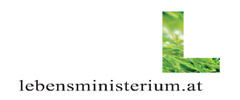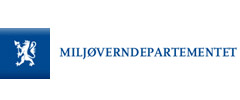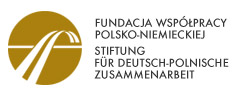Stockholm Water Week brings ecosan practitioners together
CSE interviews WECF about its ecological sanitation projects
14.09.2005 |Sascha Gabizon

International Visitors to ecological village near Stockholm, all 200 houses have urine-diverting toilets; the participants are looking into the urine-storage tanks. Tour oragnised by Varna AB.
During a 1-day meeting of Ecosan-res. all participants exchanged their experience with implementing ecological sanitation projects. In China ecological sanitation is furthest developed, with 650.000 rural households using ecological sanitation provided through a government scheme in inner-Mongolia. Projects from South-Africa, India, Mexico and the Philipinnes were presented. WECF and it’s partners are the only network currently implementing ecological sanitation in Eastern Europe and Central Asia, building ecological toilet-buildings for schools in Romania, Ukraine, Armenia, Uzbekistan and Afghanistan.
The Center for Science and Environment (CSE) is a leading environmental organisation based in New Delhi, India. During the Stockholm Water Week CSE interviewed all organisations working on ecological sanitation for their upcoming issue of “Down to Earth”, CSE’s monthly magazine. Below find the interview with Sascha Gabizon, Director of WECF.
WECF’s experience with ecological sanitation in Eastern-Europe
RK Srinivasan: What is the objective of WECF?
Sascha Gabizon: Women in Europe for a Common Future is a network of 60 organisations in 30 countries. WECF helps women to actively take part in making their communities healthier and more sustainable. We propose solutions and ask politicians to take action. WECF believes in our right to a healthy environment!
WECF works in 5 areas:
- Water and Ecological Sanitation
- Health and non-toxic chemical policy
- Farming and Sustainable Rural Development
- Energy and Halting Climate Change
- Gender mainstreaming of environmental policy
SG: Founded during the Earth Summit in Rio 1992, Officially registered in 1994
RK Srinivasan: Currently in how many countries the scheme is working
on
SG: WECF’s implementation programmes on ecological sanitation are taking place in 9 villages in 5 countries; Afghanistan, Armenia, Bulgaria, Romania, Ukraine.
WECF’s members in these countries have build demonstration project with dry toilets for schools. These dry, urine-diverting, toilets, collect urine separately from feacal material. In this way the faecal material only needs to mixed with dry organic material (leaves, wood spanes, ashes) in order to compost well, and turn into good humus for soil improvement. The urine does not get contaminated from the bacteria from the faecal material and after a safety-storage period is used as high-quality fertilizer. (see ppt enclosed). All demonstration projects have been carried out in cooperation with local universities and the University of Technology Hamburg-Harberg (TUHH). The TUHH also assures scientific follow-up after project ending.
RK Srinivasan: How do you approach community to go for ecosanitation
SG: The local organisations always start with a needs identification programme where all the village is asked to participate. Alternatives to existing sewage and pit-latrines are presented. If there is sufficient interest and willingness to contribute to the building of a demonstration project, a village committee is set up to identify the best location, building materials, obtain the cooperation of the hygiene and school commissions. An information team prepared information evenings and easy leaflets and posters about ecological sanitation in the local language(es). The demonstration project is opened with a festive event where press is invited. So far WECF has build demonstration toilets for school, which means that teachers and pupils use the new toilets. Therefore, an ecosan party is held later in the year to allow other citizen’s to also test the demonstration toilets. WECF provides the village with a mold for making urine-diverting toilets for households. The village committee then is asked to provide a mold-loan and information service for households wanting to build a urine-diverting dry toilet for their individual households.
RK Srinivasan: What are initial problems in convincing a community to adopt ecosan
SG: The dream of everybody in the region WECF works in is to have a shining white-tiled water-flush toilet room, the one’s you see in television. This is powerful image and it is difficult to propose an alternative solution. Therefore the demonstration toilets build by WECF are also the higher-cost level which show that ecological sanitation have the same advantages which people perceive from water-flush toilets – inside the house, shining, non-smelling and clean – but in addition the ecological toilets do NOT need an expensive sewage system, do NOT need piped water, do NOT pollute the groundwater and DO PROVIDE excellent soil conditioner and fertilizer.
Even if there is great interest, there are many hurdles before ecological sanitation can be implemented at larger scale. The local authorities need to be interested, the hygiene commissions need to understand the criteria for safe ecological sanitation, the building and school commissions need to be convinced that they will not be held liable for going an alternative way, the local business community needs to be convinced that there is a potential and that It’s worthwhile investing in developing toilet-slaps to local demand and taste, local financing schemes should be available to provide possibilities for loans…
Therefore, before ecosan can start a large scale, in the regions where WECF works, it is important to develop demonstration projects first to assess the local cultural differences, the local materials available and to understand the institutional barriers.
RK Srinivasan: What is the funding pattern
SG: Ecological sanitation demonstration toilets for schools are paid from grant funds which WECF obtains with international donors. For example there is private French Foundation “Fondation Ensemble” which supports efforts in this area.
Part of the up-scaling for eco-san is developing access for households to low-interest credit schemes. WECF can provide in the demonstration villages for co-funding for household investments for ecological sanitation.
RK Srinivasan: Who will take care of the system once it is implemented in community level
SG: Ecological sanitation does require cooperation with farmers if the households having ecosan toilets produce more urine than needed for their own needs.
RK Srinivasan: What is role of local government in the scheme
SG: The local government has an important role in developing ecological sanitation, it should help to reduce obstacles, create incentives and cooperate with the village committees and civil society organisations which have taken the iniatiative.
RK Srinivasan: What is your target and you are planning to achieve it
SG: There are 150 million people without adequate sanitation in the region where WECF works. WECF believes that ecological sanitation is for most the best solution, as it does not depend on external financing corporations to provide expensive loans for sewage systems which most communities will never be able to pay back, and as in addition, ecosan is greatly preferable over septic tanks (which only move the problem), pit-latrines (pollute) and conventional compost toilets (no use of urine as fertilizer). WECF will therefore continue to support it’s members wanting to develop ecosan in their communities.
WECF Contact person: Margriet Samwel.
To contact CSE go to:
CENTRE FOR SCIENCE AND ENVIRONMENT ( CSE )
41, TUGHLAKABAD INSTITUTIONAL AREA, NEW DELHI- 110 062
TEL: 29955124 29956110, 29956394,29956399 Ext. 219
FAX : 91-11-29955879
Contact person Ecological Sanitation: rksri@cseindia.org

































